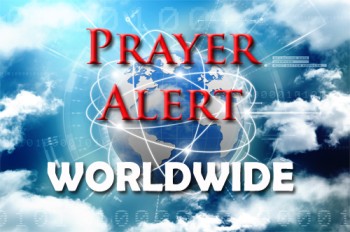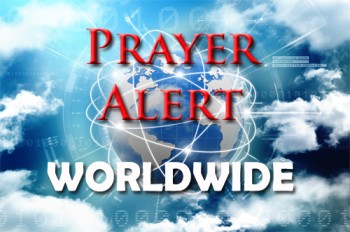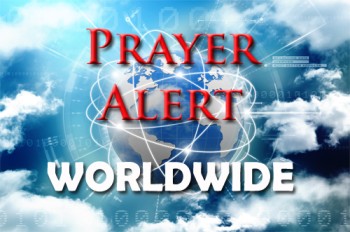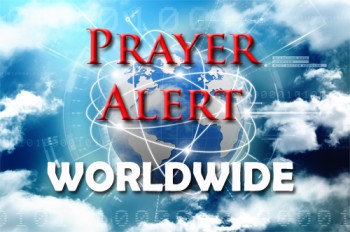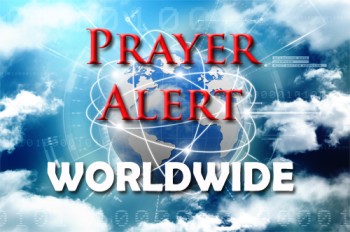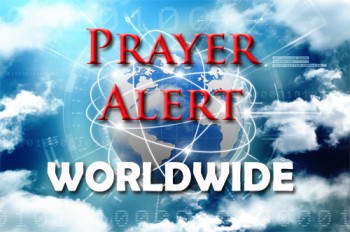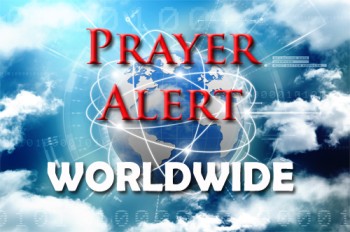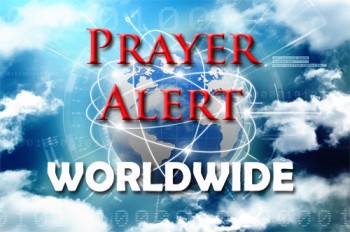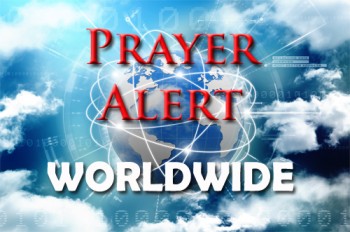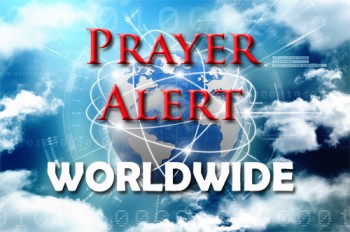Displaying items by tag: Houthis
USA: Hegseth under pressure after second Signal chat group blunder
According to an anonymous official, the White House is searching for a new Pentagon chief to replace Pete Hegseth, after claims that he shared classified military details via the Signal app with his wife, brother, and lawyer, potentially jeopardising operations in Yemen. This follows his error in March when he mistakenly included a journalist in a similar chat. Donald Trump and press secretary Karoline Leavitt have publicly defended Hegseth, calling the uproar a media smear, and Hegseth has denied wrongdoing, blaming disgruntled ex-employees. Four senior Pentagon advisers have recently departed; three of them were forcibly removed for leaking information to the press, a charge they have denied. Senators have criticised both Hegseth’s conduct and Trump’s judgment in appointing someone lacking high-level leadership experience. Meanwhile, in another controversy, Trump has stated that he has no intention of firing Jerome Powell, chair of the Federal Reserve, even after calling him a ’major loser’ for his refusal to cut interest rates. See
Red Sea: risk of oil spill from tanker attacked by Houthis
The MV Sounion, a Greek-owned oil tanker attacked by Yemen's Houthi rebels in the Red Sea, remains ablaze and could be leaking oil, according to the Pentagon. The tanker, carrying over one million barrels of crude oil, is at risk of causing one of the largest oil spills in history. The Houthis, who claim to be supporting Palestinians in the Israel-Hamas conflict, have been targeting ships in the Red Sea for the past ten months, allegedly sinking two vessels and killing two crew members. The Sounion was first attacked on 21 August, resulting in a fire that disabled its engine. Its 25 crew members were rescued by a European warship a day later. The Pentagon has expressed concern over the potential environmental disaster and reported that salvage operations have been hindered by further threats from the Houthis. Efforts are ongoing to mitigate the potential impact of the spill. Meanwhile, at least ten Palestinians have been killed in a major operation by Israeli forces in the occupied West Bank: see Breaking news: Israel and Hamas have agreed on brief pauses to the conflict to allow children to be vaccinated against polio.
Red Sea: further strikes by US military against Houthis
The US military has conducted four ‘self-defence’ strikes against Houthi forces in Yemen, destroying seven cruise missiles, a mobile ballistic missile launcher, and a drone aimed towards the Red Sea. These were regarded as an imminent threat to merchant vessels and US Navy ships. Israel's Arrow missile defence system intercepted an air attack from the Red Sea direction near Eilat. The Houthis, controlling populous Yemen regions, have targeted vessels tied to the US, UK, and Israel since November. The USA condemns their actions as terrorism, citing attacks on civilians and shipping, but the Houthis claim that their actions are in solidarity with Palestinians in Gaza. Their attacks have disrupted global commerce, rerouting ships around Africa, exacerbating humanitarian crises in regions like Sudan, Ethiopia, and Yemen. Meanwhile, Hezbollah leader Hassan Nasrallah has urged Hamas to drop their ‘absurd’ demands for releasing Israeli hostages: see
Middle East: fears of regional escalation
As Israel’s war on Gaza pushes into its fourth month, fears of regional escalation are growing, with several nations and armed groups targeting each other’s territories and common waters, and the USA boosting its military assets in the region. Last week, Iran launched attacks in Syria and Iraq after members of its elite forces were killed in Damascus allegedly in Israeli attacks. Tit-for-tat attacks between Iran and Pakistan threatened to open a new military front, but diplomacy has helped cool the tempers, for now. The Iran-backed Houthi group in Yemen has been targeting commercial and military ships linked to Israel in the Red Sea as a response to the war in Gaza. This has prompted a number of air strikes against them by the USA and the UK. Many companies are now sending their ships on a longer and costlier journey around the African continent. Meanwhile, almost daily cross-border artillery firing and drone attacks between Israeli forces and Hezbollah fighters are threatening to open another front. Tens of thousands of people on both sides of the border have been forced to flee their homes.
Red Sea: USA’s fourth round of missile strikes against Houthis
On 17 January the US military launched a fourth round of missile strikes targeting Houthi-controlled sites in Yemen, aiming to prevent imminent threats to merchant vessels and US Navy ships in the region. These actions come after months of Houthi attacks on ships in the Red Sea, causing disruptions in trade between Asia and Europe. The Houthis, backed by Iran and controlling most of Yemen, claim their actions are in solidarity with Palestinians in Gaza. The Biden administration has now decided to designate them as ‘global terrorists’, reversing a decision made in 2021; however, some commentators felt that Biden was ‘playing with fire’, possibly worsening an already dire humanitarian situation in Yemen. Despite sanctions and previous military operations by US and British forces against the Houthis, they continue to target numerous vessels. The Pentagon press secretary confirmed that the US would persist in taking military action to try to prevent further attacks.
Yemen: truce renewed - peace potential?
Six years into an armed conflict that has killed and injured over 18,400 civilians, Yemen remains the largest humanitarian crisis in the world and the world's worst food security crisis (20.1 million people, two-thirds of the population, need food assistance). On 2 August the warring parties agreed to extend a UN-brokered truce for another two months. The truce has brought the longest period of relative calm in over seven years and a significant decrease in civilian casualties and increased humanitarian access. The UN is seeking an extended and expanded truce to provide a platform for further trust-building, discussions on economic priorities, and establishing a permanent ceasefire. Turning the truce into a political agreement is challenging due to deep mistrust, competing agendas among the groups vying for power, and different ideas about what a peace process looks like. Pray for the UN to successfully reopen roads and negotiate nationwide salary payments.
Iran: Houthis should be on terrorist list
The Houthi terrorists are based in Yemen. Recently, senior Houthi leader Mohammed Ali al-Houthi went on an antisemitic tirade supporting Russia's invasion of Ukraine, stating, ‘It is because Ukraine’s President is Jewish. Any country run by a Jew ends up going to war.’ His statement gives an insight into what to expect from Iran and its proxies. Many are saying, ‘We must recognise Iran for what it is and redesignate the Houthis, who operate as a weapon of war for the Iranian regime.’ Currently Israel, Saudi Arabia, and the UAE are raising serious concerns about any new agreement between the USA and Iran that involves Iran acquiring nuclear weapons capability. They see that embracing Iran comes from a false hope that it will lead to better behaviour by its regime and terrorist proxies.
Yemen: victims 'screaming in pain, but no one is hearing'
‘There are no heroes in Yemen, just criminals and victims’, said a human rights investigator. The victims are millions of ordinary Yemenis caught in a protracted proxy war that brought Yemen to its knees and turned it into the world's biggest humanitarian disaster. The lack of easy access to the country for journalists and international monitors means many Yemenis feel, as one doctor put it, that ‘we are screaming in pain, but no one is hearing’. Recently a Sky investigation team travelled hundreds of miles through armed checkpoints and rough terrain to gather testimonies from the victims, witnesses and survivors. Families in Taiz, Yemen’s third-largest municipality and once a cultural epicentre, have experienced some of the fiercest fighting during the six-year civil war between pro-government troops backed by a Saudi-led coalition (supported by the USA and the UK) and Houthi rebels, supported by Iran. Both sides are guilty of grave human rights abuses: see
Saudi Arabia / Yemen: Houthis attack Riyadh
Eight armed drones and three ballistic missiles hit Riyadh, the Saudi capital, on 24 June. On 22 June a Saudi-led coalition had announced both sides intended to meet in an attempt to re-establish a 2019 deal that ended earlier fighting. Tensions between the two former allies in Yemen's war has surged after the expiry last month of the six-week ceasefire prompted by the pandemic. The Saudi-led intervention in Yemen has killed tens of thousands of people and pushed the country to the brink of famine. The media reporting on the most recent attack stated, ‘The Houthis said they had hit the Saudi defence ministry and a military base, while a Saudi-led military coalition said it had shot a missile down, making no reference to targets’. The area is currently quiet.
Yemen: Houthis ‘concealed’ coronavirus outbreak
Yemen’s Saudi-backed government has accused the Houthis of covering up a large outbreak of coronavirus in areas that they hold, and has called for urgent global assistance to help their war-ravaged health sector deal with coronavirus. The United Nations warned that the country could suffer a ‘catastrophic’ food security situation due to the pandemic. The WHO said that the virus is spreading undetected among the population in the country, control of which is divided between the government in the south and the Houthi group in the north.
